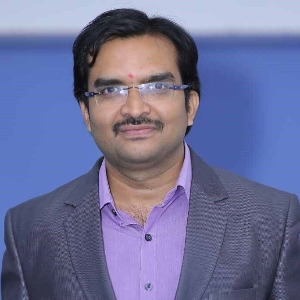Title : Advancements of AI & ML in material science
Abstract:
The rapid evolution of composite materials—ranging from natural fiber composites (NFCs) and polymer composites (PCs) to metal matrix composites (MMCs)—has spurred a growing need for accurate, efficient, and non-destructive characterization techniques. Traditional experimental and analytical methods, although effective, are often resource-intensive, time-consuming, and limited in scalability. In response, the integration of machine learning (ML) and artificial intelligence (AI) into composite materials research has emerged as a transformative approach, offering unprecedented capabilities in data-driven characterization, property prediction, defect detection, and optimization.
This review provides a comprehensive analysis of the development and application of machine learning models and algorithms in characterizing NFCs, PCs, and MMCs. It systematically explores how supervised, unsupervised, and deep learning techniques have been employed to predict mechanical, thermal, and microstructural properties, classify defects, and enhance material performance evaluations. Emphasis is placed on understanding data acquisition processes, model selection, feature engineering, and training strategies tailored to the unique complexities of each composite category.
Natural fiber composites benefit from machine learning through the prediction of fiber-matrix interfacial behavior and environmental durability. In polymer composites, ML aids in correlating processing parameters with anisotropic properties and structural performance. Meanwhile, MMCs gain from deep learning applications in microstructure analysis, stress-strain behaviormodeling, and fatigue life estimation. The review also highlights case studies where ML has outperformed traditional methods in accuracy and computational efficiency.A comparative discussion across composite types is presented to identify common challenges such as data scarcity, overfitting, and interpretability of complex models. Furthermore, the review outlines future trends including hybrid modeling, real-time monitoring via AI sensors, transfer learning, and the fusion of ML with multi-scale simulations.



